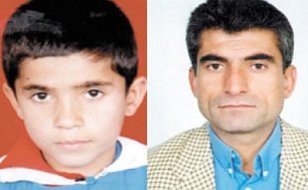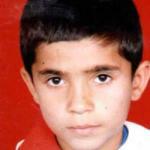“The Culture Of No-Punishment Dominates The Human Rights Violations”

The case about the killing of Ahmet Kaymaz and his twelve year old son Uğur Kaymaz at Kızıltepe Mardin has still not reached a conclusion after four years.
Tahir Elçi, lawyer of Kaymaz family, told bianet that the case file was sent to the 1st Penal Chamber of the Supreme Court of Appeals on October 3. The Chamber will make its decision without a hearing.
The Chief Prosecutor of the Supreme Court of Appeals demand confirmation of the acquittal of police officers Mehmet Karaca, Yaşafettin Açıkgöz, Seydi Ahmet Döngel and Salih Ayaz.
Kaymaz and his son were killed on November 21, 2004. The incident had made its way to the media through the announcement of the Mardin Governor that “two terrorists were killed.”
The court at the city of Eskişehir had determined on April 18, 2007 that the accused had killed Kaymaz and his son, but had reached the decision that they were killed in self-defense and acquitted the police officers.
Elçi: The culture of no-punishment is dominant
Claiming that there was not going to be fair trial since the beginning, Elçi says, “When we look at the violation of rights that have happened in Turkey in the past year, we see how right we have been. These incidents are the proof of how dominant the culture of no-punishment is. If the police officers who killed Kaymaz and his son had gone through a fair trial then perhaps the public officials would not act this comfortably and Engin Ceber would not be killed. The trials about torture and extrajudicial killings have reached no where. Kaymaz case is a good example.”
Elçi was prosecuted for “attempting to influence the process of fair trial” because of his words about the case, but was acquitted.
Demand to arrest the accused have been rejected constantly
Both the lawyers of the family and the lawyers who joined the case on the side of the defendant have had doubts regarding the fairness of the trial.
Their demand that the accused should be arrested has been denied constantly. The accused police officers were assigned to places like Istanbul, Bursa, Kocaeli and Mersin and thus continued their duties as police officers. The trial was transferred from Mardin to Eskişehir for the security reasons. The first time the accused joined the trial was in Eskişehir.
Medical Reports
Medical Examiner’s Office had stated its first report that the bullets had entered Uğur Kaymaz’s body very closely and that he could not fight back after he was injured. Contrary to the statements of the police officer that Uğur Kaymaz was older, the report stated that he was 12 years old, about 1.60 m in height and medium built.
Lawyers’ demand to inspect the scene of the shooting was refused. Instead, the pictures from a CD taken by the Police Department were inspected.
The Medical Examiner’s report also stated in the report that the powder traces in Uğur Kaymaz’s hands could not be used as proof of involvement in the skirmish. The lawyers of the accused were claiming that these traces were the proof that Uğur Kaymaz shot back. The defense lawyers had also pointed out to fact that the report of the Medical Examiner’s Office about the guns disproved the allegations of the accused. (TK/TB)
KURDISH QUESTION
PKK Ceasefire to be Terminated on 31 October?

KCK CASE
Court Dismissed Request for Defence in Kurdish

7th Istanbul Gathering for Freedom of Thought

CONSTITUTIONAL AMENDMENTS
58 Percent Said "Yes" to Constitutional Reform Package

Rights Organizations 3 Years ahead of Foreign Minister






